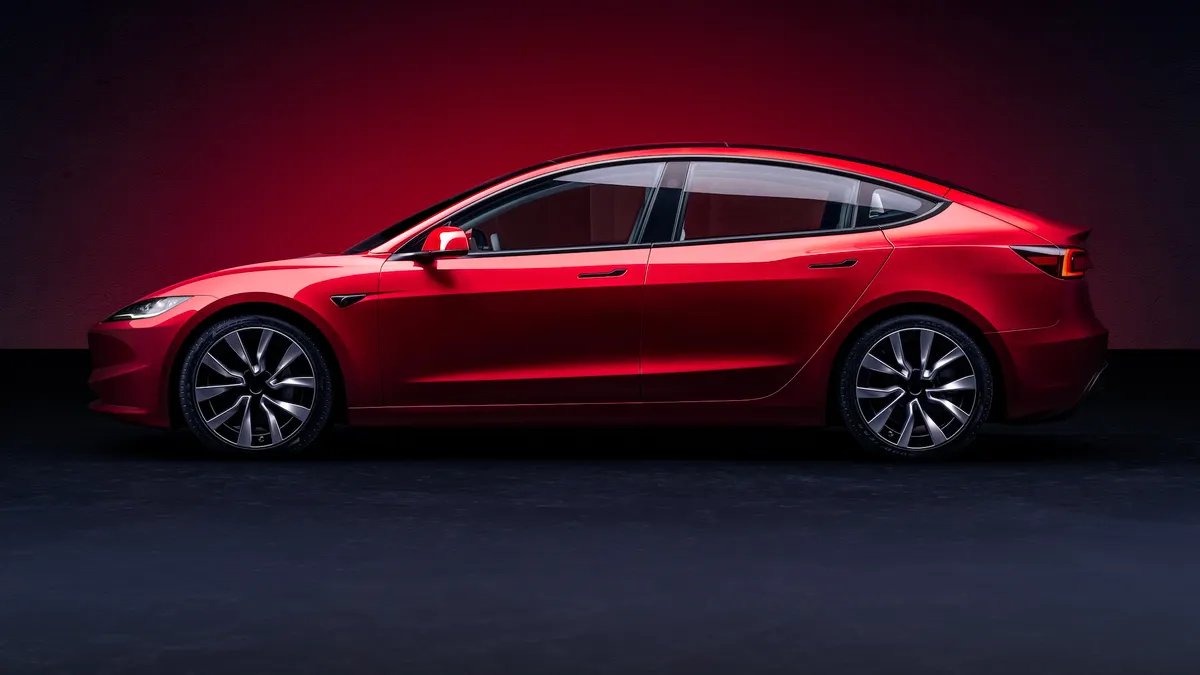Editor's note: This story is part of the WardsAuto digital archive, which may include content that was first published in print, or in different web layouts.
BRUSSELS – The European Commission next month will file suit against European Union-member governments over their alleged failure to act on their response to the Dieselgate emissions-cheating scandal.
“You will definitely see some infringement procedures next month,” Elzbieta Bienkowska, commissioner for the European Union’s internal market, industry, entrepreneurship and small and medium enterprises, tells the European Parliament’s Committee of Inquiry into Emission Measurements in the Automotive Sector.
Those actions could demand member states to act more vigorously to prevent emissions-measurement cheating and ultimately be adjudicated at the European Court of Justice.
Bienkowska does not name the member states targeted in a hearing this week. But she says she is not satisfied with the reports on national investigations into Dieselgate presented to the Commission – the EU’s executive branch – by the EU’s four biggest members, France, Germany, Italy and the U.K. – the only four reports sent to Brussels on the subject.
“All of them have some holes in them,” she says of the information in the four EU members’ reports.
Bienkowska criticizes member states and their reluctance to enforce EU law correctly. “It is a complete disgrace that (emissions-) defeat devices were not uncovered and were not sanctioned.” Market surveillance to back up type approval “is often too weak” and when it comes to fines “not one member state applied them effectively,” she says.
The commissioner also decries the industry’s handling of Dieselgate and admits the EC has no evidence automakers other than Volkswagen used defeat devices, but she has her doubts.
Bienkowska also slams VW and its Audi subsidiary for not compensating European consumers, noting such payments have been made to motorists in the U.S.
“This is not fair,” she says.
The commissioner acknowledges EU and U.S. law differ on compensation, but nevertheless “There must be voluntary action from car makers.”
EU Pressures Automakers As European Parliament Presses EU
Bienkowska’s comments, however, come as the EU itself has come under fire in the scandal and related inquiry, with an interim report released Sept. 13 by Parliament’s investigative committee, saying the EU executive needs to release information more promptly to help the probe.
In a debate before the vote, Parliament member Pablo Zalba Biedegain, a Spanish Christian Democrat, who drafted the resolution with Dutch liberal Gerben-Jan Gerbrandy, emphasized it was not enough to “investigate and find the truth of what happened in the past.”
EC investigators “should also make proposals to prevent something similar being repeated in the future. The crisis is also an opportunity to adapt the European automotive industry to the 21st century.”
Adds Gerbrandy: “It’s much more than Volkswagen. Other manufacturers shut down emission-abatement technology after 22 minutes or when (air) temperatures fell below 68˚, 63˚ or 50˚ F (20˚, 17˚ or 10˚ C). Why did it take so long to develop this real driving emissions test? The Commission promised two years, but it took many, many more.
“There are many questions concerning the weak implementation and enforcement of European legislation,” Gerbrandy continues, citing former industry Commissioner Antonio Tajani’s statement at a Sept. 5 hearing there were “huge differences between the way the Commission dealt with air-quality legislation, starting with 22 infringement procedures, and (the EC’s) responsibility in this field, without any action towards member states.”
In this week’s debate, Parliament member Claude Turmes of Netherlands’ Green Party asks why the Commission had not acted earlier when it had the information to justify demanding recalls of the cars as long ago as 2010.
“With that attitude, we won’t regain consumer confidence,” he says.
EU Commissioner Bieńkowska agrees, saying, “We need to restore confidence of our citizens. There are still many outstanding questions where information is needed and member states must transmit this. Their reluctance and resistance to necessary changes is discouraging, not to say disappointing.”
But Parliament member Sebastian Dance, a U.K. socialist, says passing the buck is pointless.
“Everyone is blaming everyone else – the Commission, (Parliament members), car makers,” he says.
“Forthcoming legislation mustn’t include the same loopholes and this can’t become a political slanging match between left and right. We owe it to consumers to get it right.”
Parliament’s Committee of Inquiry, formed in March following revelations VW had used cheating devices to reduce pollutant emissions during official car tests, will meet as many as 10 times more before year’s end. Its final report must be submitted to the full European Parliament by March 2, 2017.
The top diesel engineer from auto parts supplier Bosch tells the committee Sept. 15 that test-detection software, which switches off some functions during testing, was needed to prevent errors.
“Volkswagen actually need test recognition software in the program,” says Michael Krüger, Bosch’s senior vice president-diesel system engineering.
Pressed by astonished lawmakers, Krüger says that when a vehicle is on a roller bank (dynamometer), only two wheels are moving, not four, and results would not be accurate. So, “it is necessary to detect that a car is on a roller bank.”
Krüger admits Bosch supplied parts to automakers with the software to detect testing, but makes clear it was up to the car maker how that was used.
“This is a little bit like a buffet and the OEM goes and gets the parts that it needs to achieve its goals,” he says.
Asked whether an automaker could avoid testing without the company’s input, Krüger makes clear Bosch was only one of three component suppliers and “it is the interplay of all of the components. So the only one responsible for the final result is the OEM.
“To recognize that you have testing, that is acceptable, but you can’t use that to manipulate something.”
– with Liz Newmark


















